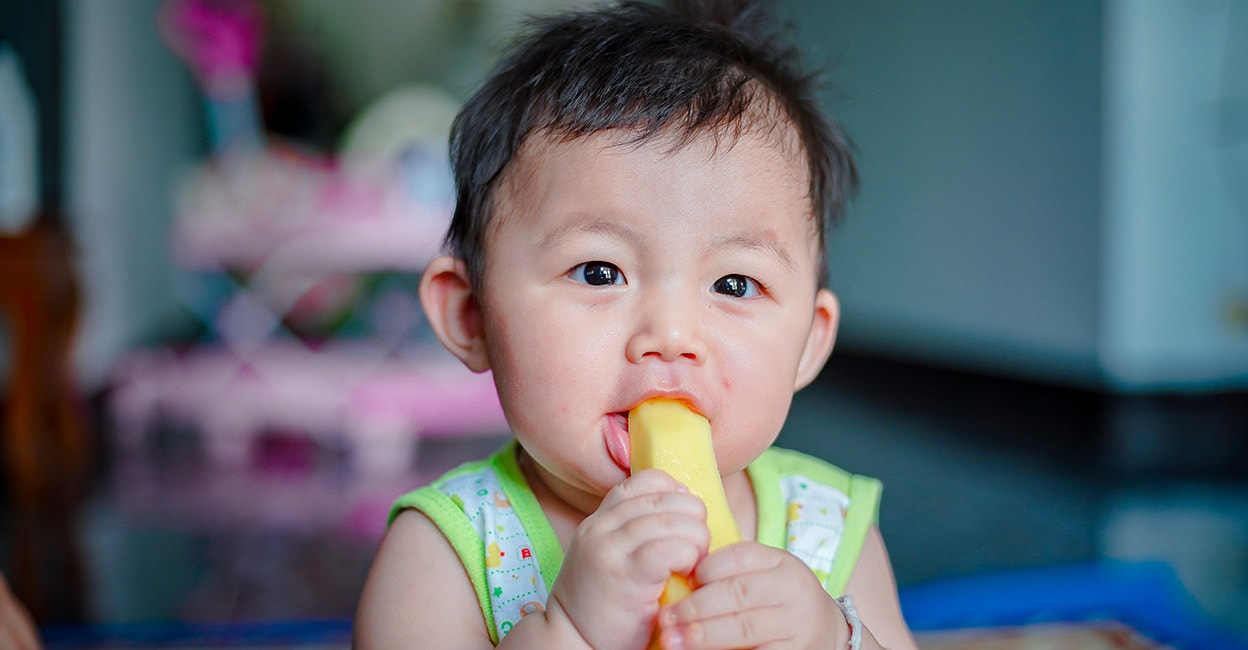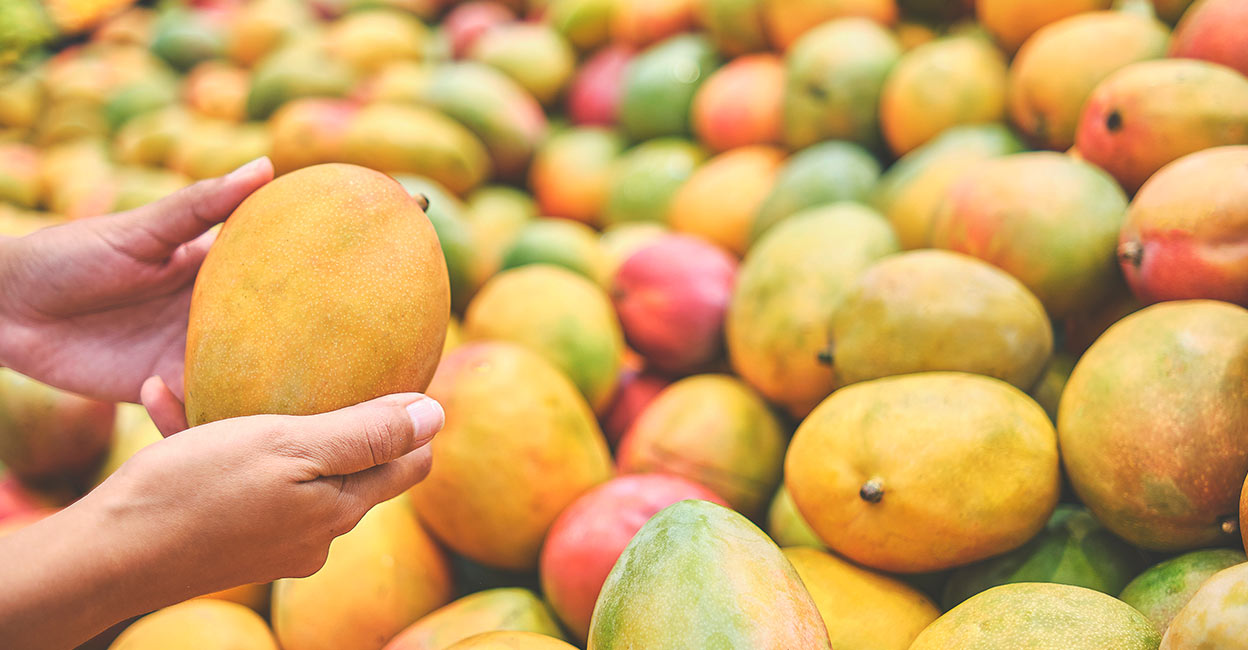Is it okay to give mangoes to babies in summer?

Mail This Article
Yes, mango can be given to babies in summer, but it's important to do so in moderation and following certain guidelines. In summer, mango can be a delightful and refreshing addition to your baby's diet. Mangoes have high water content, making them hydrating for babies, which is especially important during hot summer days when they may need extra fluids. They are packed with vitamins and minerals such as vitamin C, vitamin A, and potassium, which are essential for your baby's overall health and immune function.
Cooling effect
Mangoes have a naturally sweet and refreshing taste, making them a pleasant treat for babies during the heat of summer. Ripe mangoes are soft and easy to digest, making them suitable for babies who are transitioning to solid foods.
When offering mango to your baby in summer, ensure it's ripe, thoroughly washed, peeled, and cut into small, manageable pieces or pureed to a smooth consistency, depending on your baby's age and eating abilities. As always, monitor your baby for any signs of allergies or digestive discomfort, and consult with your paediatrician if you have any concerns.
Do mangoes heat up body?
The concept of certain foods producing "heat" or "cooling" effects on the body is a common belief in some cultures, particularly in traditional medicine systems like Ayurveda. However, from a scientific perspective, there isn't strong evidence to support the idea that specific foods directly increase or decrease body temperature.
Mangoes themselves do not inherently produce heat in the body. They are a nutritious fruit rich in vitamins, minerals, and antioxidants, which offer numerous health benefits. While some people may feel warmer after consuming certain foods, including mangoes, this is typically due to individual variations in metabolism and digestion rather than any inherent heating effect of the food. In conclusion, enjoying mangoes in moderation as part of a balanced diet is unlikely to significantly affect body temperature.

Introduction age
Introduce mango to your baby's diet when they are around 6 months old or when you start introducing solid foods. This is typically the age when babies can handle pureed or mashed fruits.
As with any solid food, be cautious of choking hazards. Ensure that mango pieces are soft and small enough for your baby to handle safely.
Mangoes are rich in vitamins A and C, as well as dietary fibre. They provide essential nutrients for your baby's growth and development. Mangoes are not a common allergen, but some babies may still develop an allergy to them. Introduce mango in small amounts initially and watch for any signs of allergic reactions such as rash, hives, swelling, or difficulty breathing.

Preparation
You can mix pureed mango with other fruits or vegetables, add it to baby cereal, or serve it plain as a standalone snack. Avoid giving unripe or underripe mango to your baby, as it can be difficult to digest and may cause stomach upset. Peel a ripe mango and remove the flesh from the seed. Cut the mango into small, manageable pieces or puree it to a smooth consistency, depending on your baby's age and ability to chew.
Introducing a variety of fruits, including mangoes, can help expose your baby to different flavours and textures, promoting a well-rounded palate.



